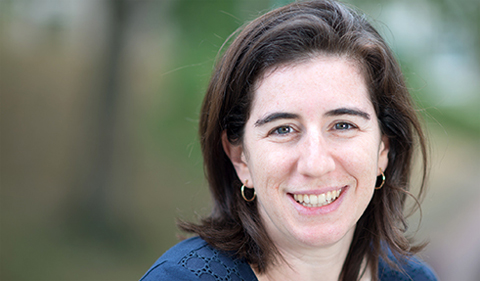
Dr. Nicole Kaufman
Dr. Nicole Kaufman, Assistant Professor of Sociology at Ohio University, presented at the Frontiers of Democracy Conference at Tufts University in Boston in June.
This innovative conference brings together personnel from non-profits, city governments, foundations, and academia to discuss pressing issues in inclusion, political institutions, and community mobilization to improve democracies.
The paper she presented, “Governing through Partnerships: Ohio’s Church-State Relationships in Drug and Alcohol Policy,” investigates state partnerships with non-governmental organizations (NGOs) as a strategy of governance in drug policy, in the context of the rise of the New Right. The results demonstrate how and why officials in Ohio have relied on the religious community to handle drug prevention and treatment since the 1980s.
The Summer Institute of Civic Studies followed later in June in Medford, MA. The seminar focused on questions of morality, such as “How can people work together to improve the world?” and “How can people reason together about what is right to do?”
Kaufman then participated in The Society for the Study of Social Problems in August in New York, presenting “Contested Forms of Knowledge in the Criminal-legal System.”
The SSSP conference is a national sociological association that emphasizes research that builds an understanding of power and marginalization. Written with Dr. Megan Welsh, Associate Professor in the School of Public Affairs at San Diego State University, Kaufman’s paper examines a movement promoting the use of “evidence-based practices” that has gained popularity in recent years, with proponents calling for “scientific” approaches to the processing of clients across human services fields. The paper uses data collected from parole and probation agents in California to analyze the role of algorithms and intuition, “gut feeling” and prior experience in shaping criminal justice decisions. The results demonstrate that hybridized scientific and non-scientific knowledge about clients has the potential to magnify bias in criminal justice decision-making.

















Comments